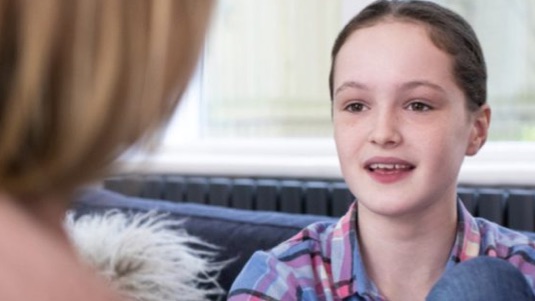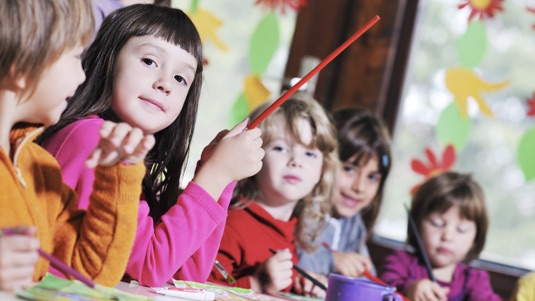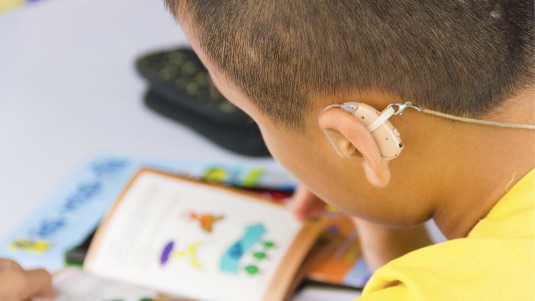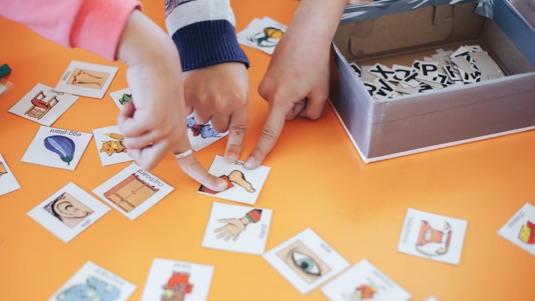Staff CPD
Give your staff the confidence and competence to support all your students.
High quality,
engaging CPD
The Mable Academy's CPD library empowers your staff to identify and support mental health and SEND in your school. Each video course is around an hour long, and is broken into 5-8 minute modules, meaning staff can learn at their own pace.

Certified courses on
wellbeing and SEN
All of our courses are certified, meaning CPD points are awarded to staff at the end of each course. They cover a broad range of topics, such as Counselling Skills for Teacher, Creating a Communication Friendly Classroom and the Link Between Behaviour and Communication.
Track your staff’s
CPD engagement
Once your school is registered, your whole staff have access to the Mable Academy. Our software tracks how many courses they've completed, giving you a comprehensive overview of which courses they're accessing, and how much CPD each member of staff has done.
The courses

The Impact of Diversity on Mental Health in Schools
Dr Delroy Hall
The effect of race, culture, ethnicity, gender, sexuality and disability on mental health is explored in this course, including the impact on child development.

Identifying Mental Health Issues : A Guide for Teachers
Barry Clarke
In this course, Barry offers tools and strategies to recognise mental health red flags, as well as the reason those issues may have arisen.

Supporting Students to Overcome Anxiety
Kemi Omijeh
In these modules, Kemi looks at how to support these students, offering practical strategies and techniques.

Building a Bully-Free Classroom
Professor Peter Smith
Professor Peter Smith shares decades of research and expertise in the field of bullying.

Building Emotional Literacy and Resilience in Children
Helen Spiers
Helen talks about poor attachments, Adverse Childhood Experiences (ACEs) and a closer look at the different aspects of resilience.

Students' Mental Health: The Return to School Post-COVID-19
Helen Spiers
Helen explains the importance of allowing children to reflect back on a difficult year, before giving them strategies to build their resilience.

Mindfulness Exercises for the Classroom
Kemi Omijeh
In these modules, Kemi gives some quick and easy mindfulness activities that can fit easily into your busy schedule.

Supporting Students with Challenging Behaviour
Kemi Omijeh
In this course Kemi talks about different types of challenging behaviour and what could be behind it.

Counselling Skills for Teachers
Helen Spiers
In ‘Counselling Skills for Teachers’, former teacher and children’s counsellor Helen gives practical advice on how to support pupil wellbeing.

An Introduction to Speech and Language
Martha Currie
This course will explain some of the terms used, and provide an introduction to some of the theory behind methods used to develop speech, language and communication skills.

Creating a Communication Friendly Classroom
Emily Woodhouse
This course will explore adaptations you can make to your classroom environment to ensure that it is inclusive and accessible for every pupil in your class.

The Link Between Behaviour and Communication
Alicia Lynch
There is a strong link between social, emotional and mental health (SEMH) and language. During this course you will learn about how attachment difficulties affect early brain development.

Teaching Vocabulary in the Classroom
Lorraine Bamblett
This course covers the importance of vocabulary learning and how to choose the right vocabulary to teach at each Key Stage.

Introduction to Social Communication Disorders
Alicia Lynch
In this course you will learn about the features of social communication disorders and consider the larger long term implications of this.

Identifying and Helping Children with Selective Mutism
Alicia Lynch
This course gives an overview of what selective mutism means and the impact of selective mutism in the classroom.

Strategies to Support Children with Hearing Impairment
Martha Currie
This course explains the different types of hearing aids, discusses classroom acoustics and develops an understanding of what it means to have a hearing impairment

How to Use Picture Exchange Systems
Emily Woodhouse
This course will explore how symbol exchanges can be used to encourage communication skills and how you can support them throughout the different stages of their journey.

Understanding and Supporting Children with Executive Functioning Difficulties
Emily Woodhouse
These are a few red flags for children with executive function difficulties. This course will explore how to identify these pupils as well as highlighting effective support strategies.